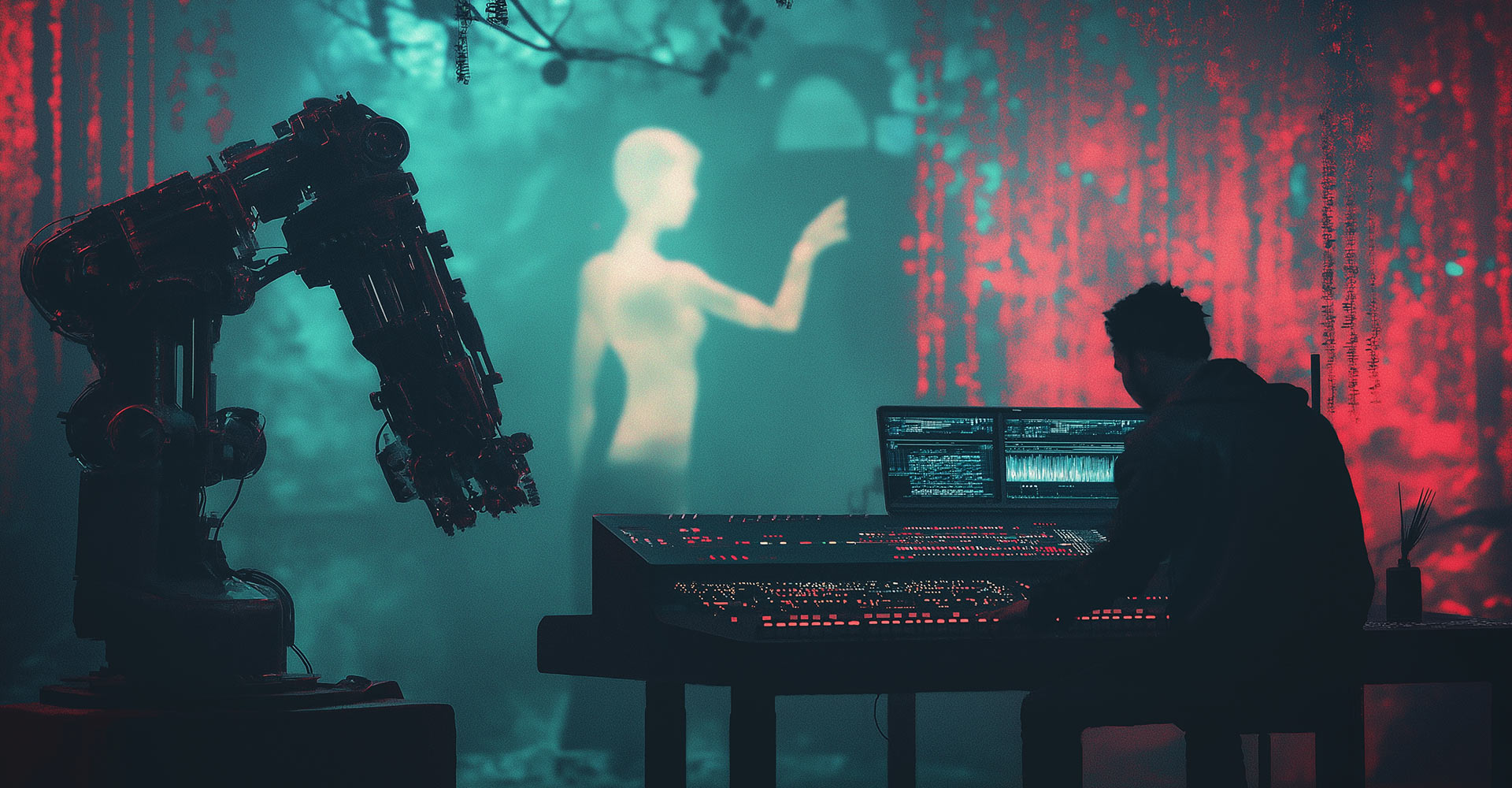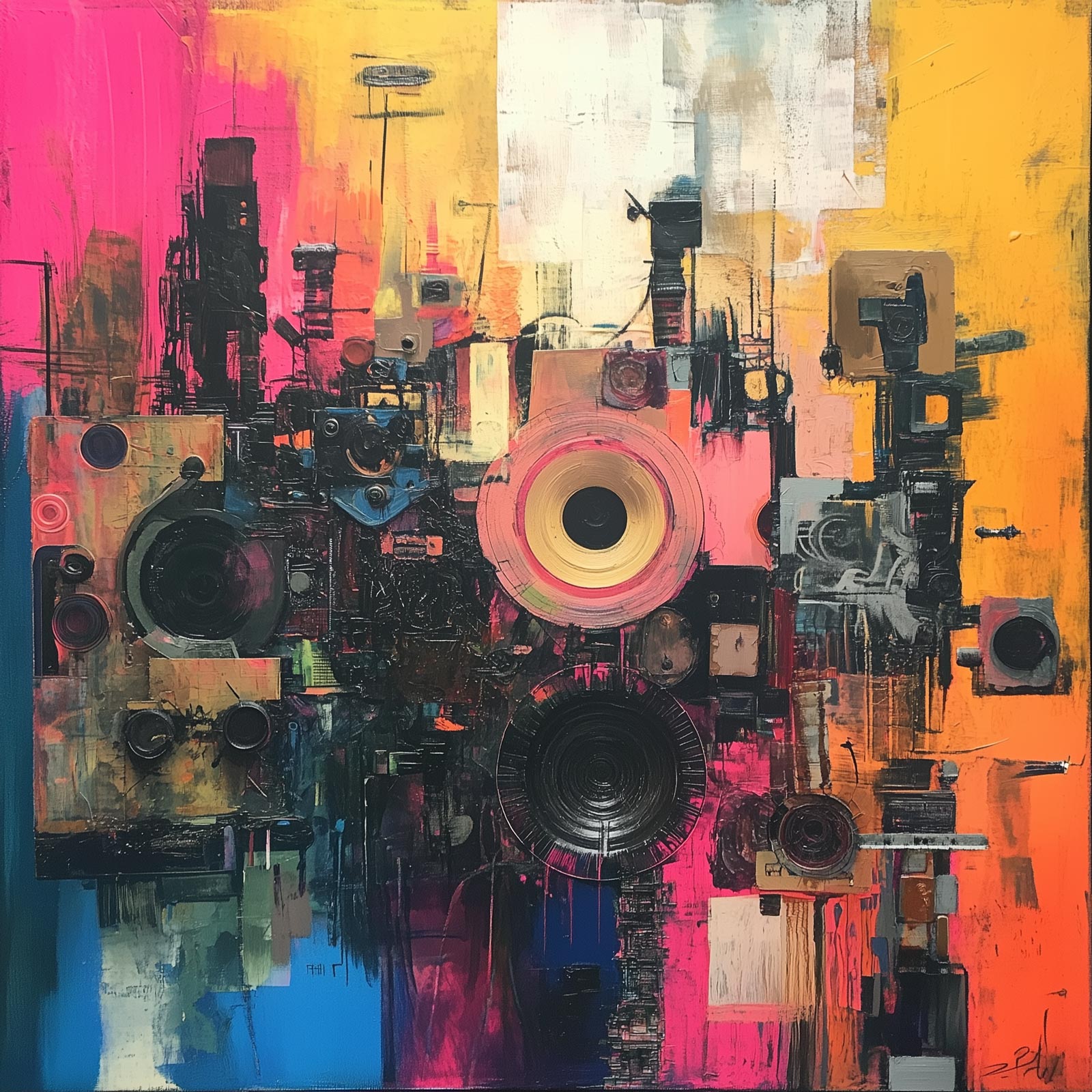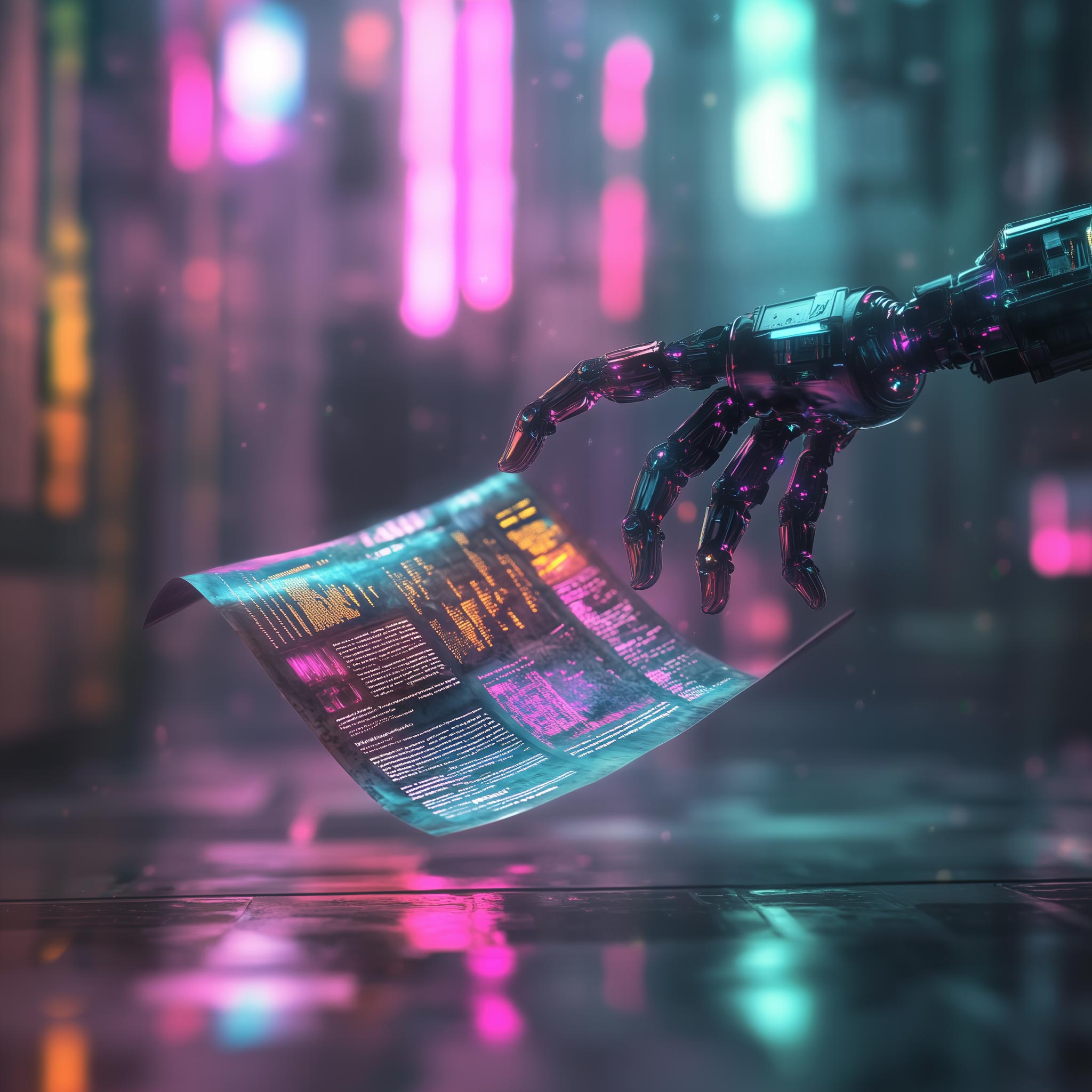Not too long ago, discovering new music meant flipping through stacks of records, tuning into the radio, or waiting for a mate to make you a mixtape. The process was personal, sometimes painstaking, but always driven by human taste and artistic curation. Fast forward to today, and artificial intelligence (AI) has firmly planted itself in the music industry, not only curating playlists but also composing songs, assisting with lyrics, and even reviving voices from the past.
For some, AI is an exciting new instrument in the orchestra of musical progress, a tool that empowers creativity and democratises music production. For others, it is a synthetic interloper, threatening to undermine the artistry and authenticity that make music an inherently human experience.
So, is AI the perfect backing vocalist for the music industry, or is it a rogue band member destined to throw the entire performance into chaos?
AI’s Growing Influence in the Music Industry
The rise of AI in music is not speculative or theoretical—it is happening now, changing how songs are created, produced, distributed, and experienced. From algorithmic compositions to data-driven marketing strategies, AI is influencing every stage of the industry.
AI as a Composer: The Birth of the Digital Songwriter
Artificial intelligence is no longer limited to repetitive loops or background beats. AI-powered platforms like Amper Music, AIVA, and Jukedeck have been designed to generate complete compositions from scratch. These tools use deep learning models trained on thousands of musical pieces, allowing them to understand composition structures, chord progressions, and rhythm patterns.
The result is a technology that can compose original pieces based on user-defined inputs, such as mood, genre, or instrumentation. A filmmaker needing a quick soundtrack, a game developer looking for adaptive scores, or a content creator in need of copyright-free music can now instantly generate tailor-made compositions.
This capability accelerates production and significantly reduces costs. Traditionally, hiring a composer or licensing music can be expensive, especially for small-scale creators. AI-generated music provides an alternative that is both quick and affordable.
However, this raises the question of authenticity. Can a machine, no matter how advanced, truly grasp the emotional depth that underpins music? While AI can mimic structure, it lacks the lived experiences and raw emotions that fuel human creativity. There is an undeniable difference between a song written from personal heartbreak and one generated by an algorithm optimising for sentimentality.
Lyric Writing and AI: Can Machines Capture Emotion?
Lyrics are one of the most personal aspects of songwriting, often drawing from deep human experiences, personal struggles, and cultural influences. AI tools such as OpenAI’s ChatGPT and Google’s LyricStudio can now generate lyrics based on a given theme, emotion, or even in the style of a particular artist.
AI can act as a co-writer for songwriters facing writer’s block, offering ideas and suggesting rhymes. It can also analyse hit songs and generate lyrics optimised for virality. But can a machine write poetry with the same nuance as a human?
While AI-generated lyrics may be structurally sound and commercially viable, they often lack the idiosyncrasies that make an artist’s work distinctive. There is a reason why great songwriters like Bob Dylan and Joni Mitchell stand out—it’s not just about well-placed rhymes; it is about perspective, personality, and storytelling.
AI in Music Production: The Unseen Studio Engineer
Beyond composition, AI is also revolutionising the production process. Traditionally, mixing and mastering require years of expertise to balance frequencies, refine vocal quality, and ensure that a track sounds polished across different playback systems.
Platforms like Landr and iZotope have introduced AI-powered mixing and mastering, allowing artists to enhance their sound at a fraction of the time and cost of a professional engineer. These tools analyse audio and automatically adjust levels, EQ, compression, and other effects to create a polished final product.
For independent musicians without access to high-end studios, this technology is invaluable. It levels the playing field, making professional-grade sound accessible to anyone with a laptop. However, just as with AI-generated music, there is a debate over whether automation can replace the human touch that distinguishes a good mix from a great one.
AI-Powered Streaming and Playlist Curation
AI’s influence is not limited to music creation—it also dictates how we consume it. Streaming services like Spotify, Apple Music, and YouTube rely on AI algorithms to curate personalised playlists, using data on user preferences, listening history, and even mood indicators to recommend new tracks.
On the surface, this level of personalisation enhances the user experience, introducing listeners to new artists and songs that align with their tastes. However, the downside is the creation of musical echo chambers, where users are continually fed variations of the same style, limiting organic discovery.
AI-driven recommendations prioritise engagement, often promoting music that fits within a user’s behavioural patterns rather than encouraging exploration. As a result, independent artists may struggle to break through unless their work aligns with algorithmic preferences.
Virtual Artists and AI-Generated Vocals
The emergence of AI-generated artists has already begun to blur the lines between technology and human performance. Virtual pop stars like Hatsune Miku have amassed global followings, with entirely AI-driven personas captivating audiences.
Moreover, deepfake-style AI voice synthesis has enabled the recreation of legendary artists’ voices, allowing for “new” music to be released posthumously. The Beatles’ “Now and Then” project is a prime example, where AI was used to isolate and enhance John Lennon’s vocals from an old demo recording.
While this technology is impressive, it raises ethical and legal questions. Who owns the rights if AI can perfectly replicate an artist’s voice? Can an artist control their digital likeness after death? And does this erode the value of live, human performances?
The Future: Where Is AI Taking Music?
Looking ahead, AI’s role in music will only expand. Some potential developments include:
• AI-created genres: As AI experiments with blending musical influences, we may witness entirely new genres emerge—ones that human composers might never have thought to create.
• Real-time adaptive music: AI could generate soundtracks that adjust dynamically based on listener mood, physical activity, or environment.
• AI-powered songwriting assistants: Musicians may rely more on AI to generate initial ideas, melodies, or even full arrangements, while still infusing their personal style into the final product.
• Interactive virtual concerts: AI could create immersive concert experiences where music adapts to audience engagement, bridging the gap between digital and live performance.
Challenges and Ethical Concerns
Despite its potential, AI in music is not without challenges:
• Job displacement: If AI becomes a dominant force in music composition, what happens to traditional songwriters, producers, and musicians?
• Copyright issues: Many AI models are trained on existing music—who owns the rights to the songs they generate?
• Authenticity and emotional depth: Can AI ever replicate the human experience that makes music so powerful?
These concerns will require careful navigation, balancing innovation with ethical responsibility.
Conclusion: Collaboration or Competition?
AI is not inherently a threat to music or a panacea. Much like synthesizers, drum machines, and digital production software before it, AI is a powerful tool, but a tool nonetheless.
The best path forward is collaboration. Musicians, producers, and technologists must work together to ensure that AI enhances creativity rather than replaces it. The soul of music lies in human connection, and while AI may compose melodies, it is the artist’s interpretation, emotion, and performance that breathe life into them.
Technology has always shaped music, from the phonograph to digital streaming. AI is just the next evolution. The question is not whether AI will change music—it already has—but how we choose to use it.



